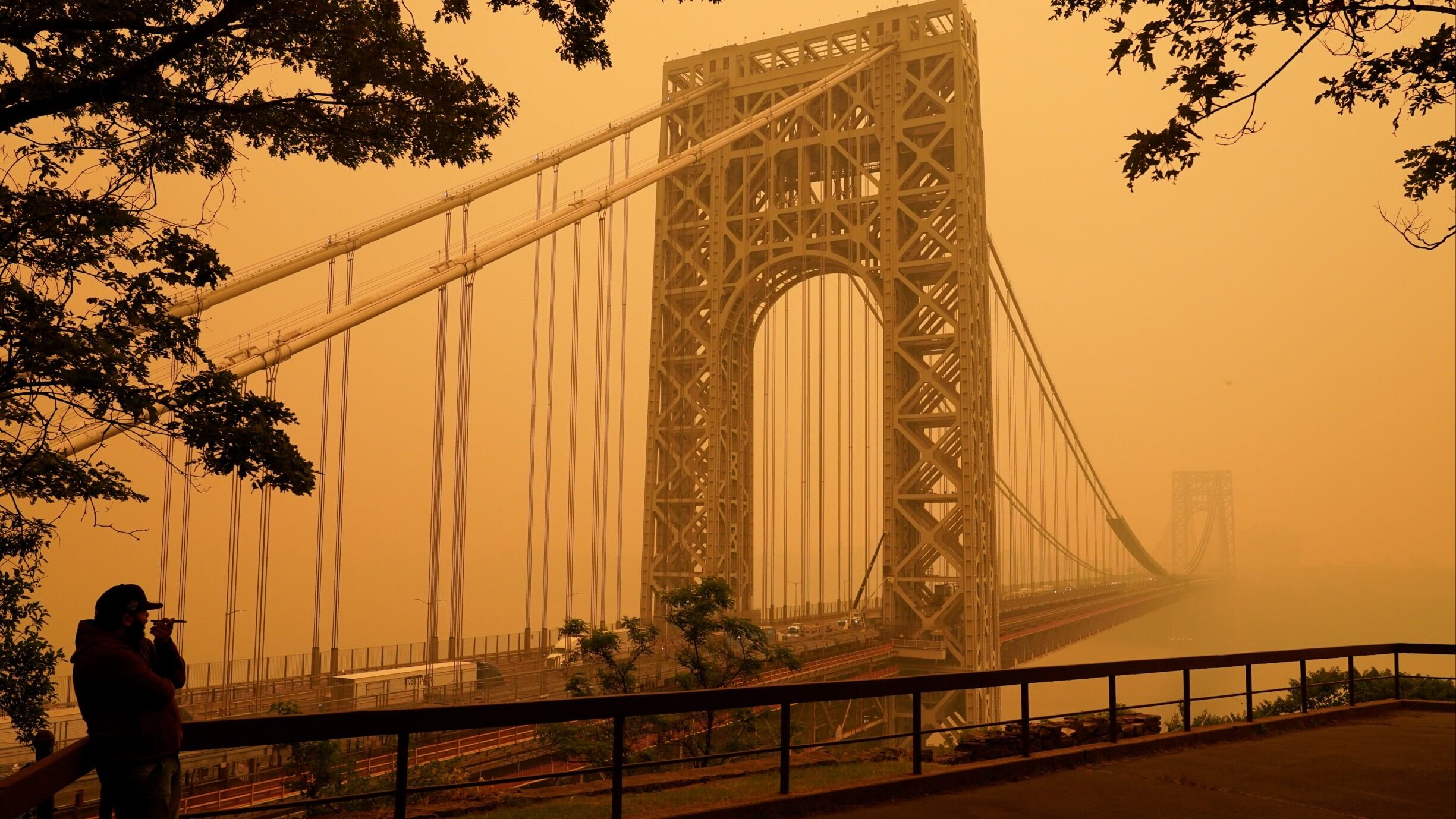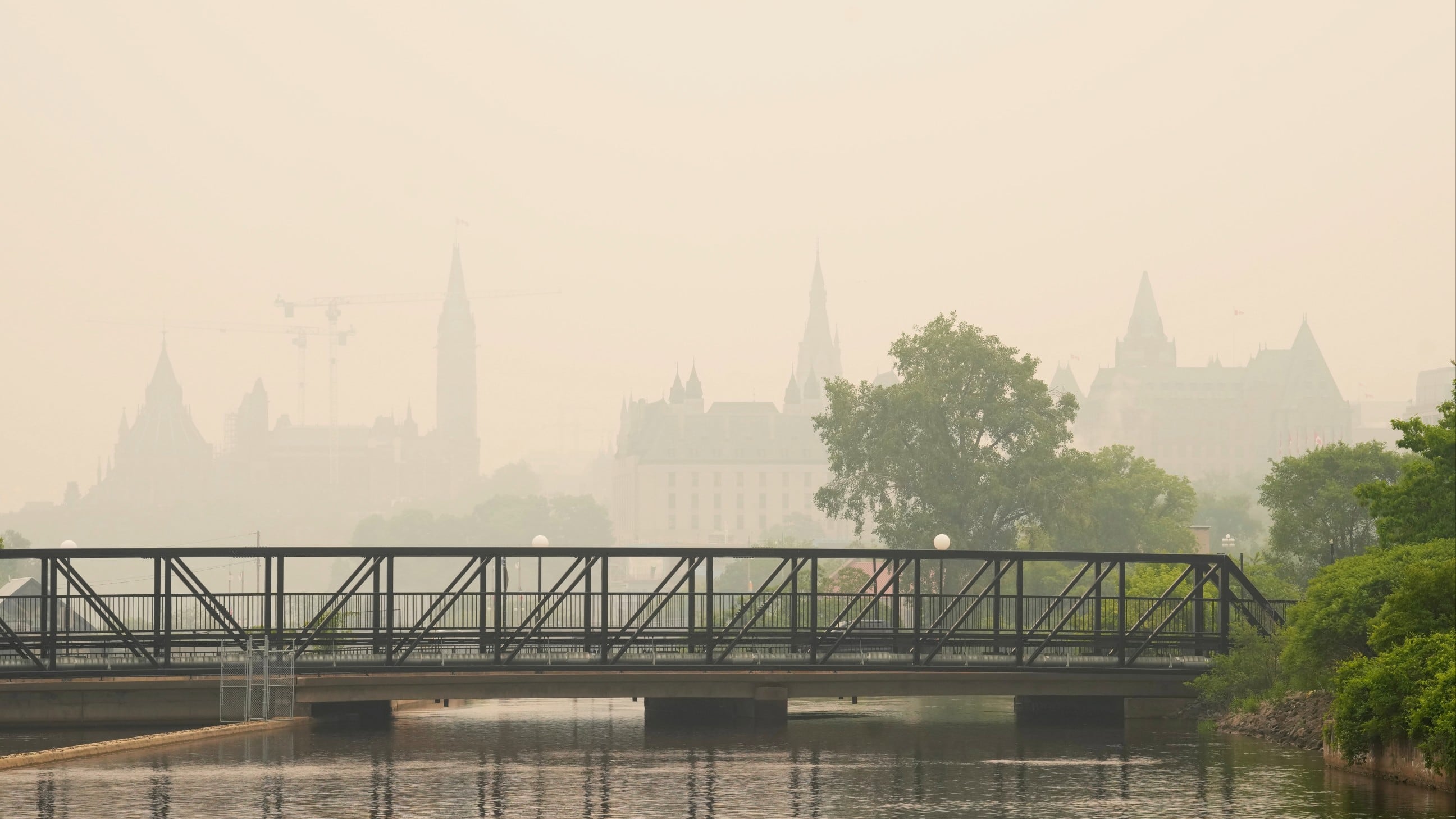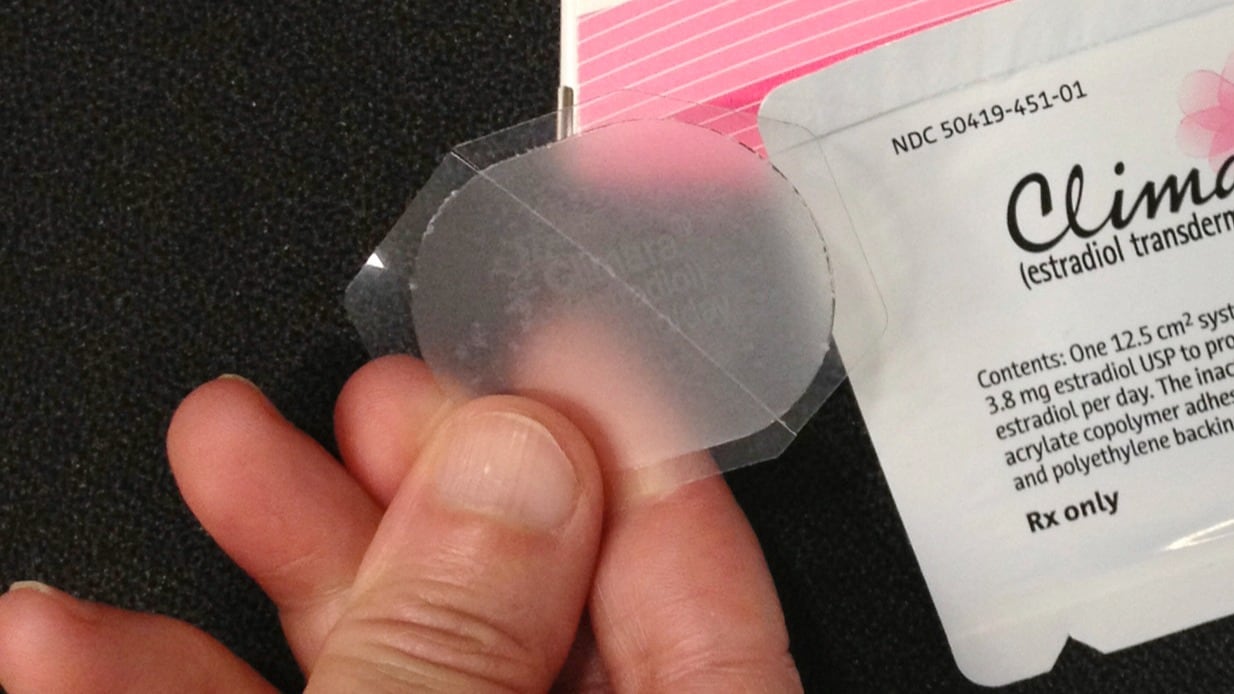When you think of volcanoes in the United States, Hawaii likely comes to mind. However, America's most dangerous volcano isn't on an island.
Mount St. Helens sits just miles from the city of Seattle, and has erupted regularly throughout the past century. It last erupted on May 18, 2017, but scientists have picked up subterranean activity recently near the volcano.
Steve Olson, Author of "Eruption: The Untold Story of Mount St. Helens" discusses the likelihood of another eruption in the near future. He also takes a look at some of the other active volcanoes in the United States.
If a volcano erupts near a large city like Seattle, it would not only be dangerous for the people who live there, but very costly for the businesses located in the area. Olson discusses the economic impact that an eruption would have.
Smoke from Canadian wildfires poured into the U.S. East Coast and Midwest on Wednesday, covering the capitals of both nations in an unhealthy haze, holding up flights at major airports and prompting people to fish out pandemic-era face masks.
Be Well: Full Body Beach Workout Routine
Be Well: How Blood Tests Can Determine Your Body's Biological Age
Be Well: How Therapy Sessions Can Boost Your Mental Health
Experts are warning about a new Covid-19 wave as 14 of New York City's wastewater treatment plants showed high levels of the disease in the past week.
Canada is dealing with a series of intense wildfires that have spread from the western provinces to Quebec, with hundreds of forest fires burning. The smoke has traveled into the United States, resulting in a number of air quality alerts issued since May.
Be Well: How to Identify PTSD Warning Signs and Help With Triggers
Clinical trials of Moderna and Merck’s experimental cancer vaccine showed results in reducing the spread of the most deadly form of skin cancer.
Women often use hormone therapy to relieve hot flashes and other menopause symptoms — and new research suggests patches or creams may be safer for their blood pressure than pills.
The cause of global warming is showing no signs of slowing as heat-trapping carbon dioxide in Earth’s atmosphere increased to record highs in its annual Spring peak, jumping at one of the fastest rates on record, officials announced Monday.












